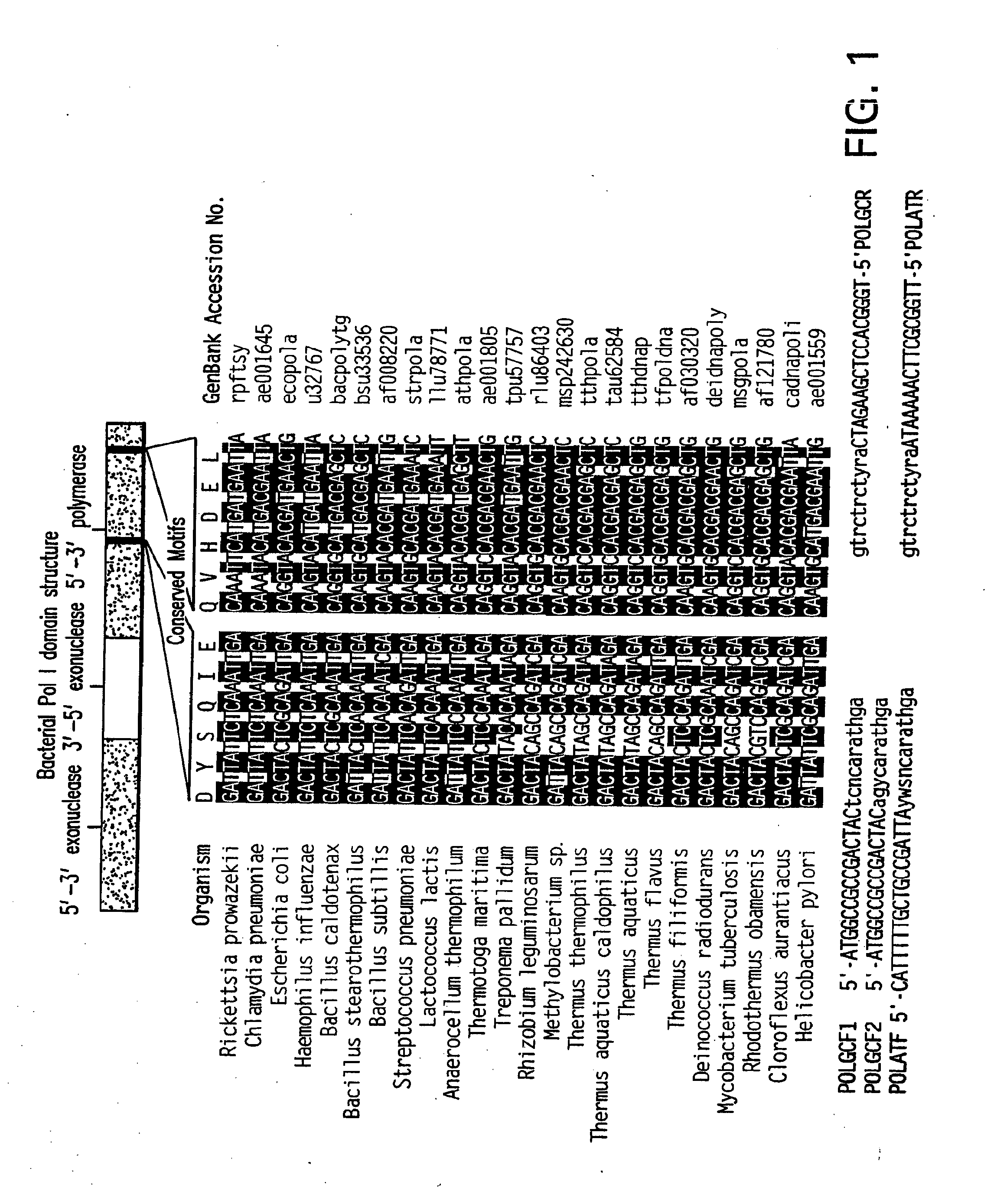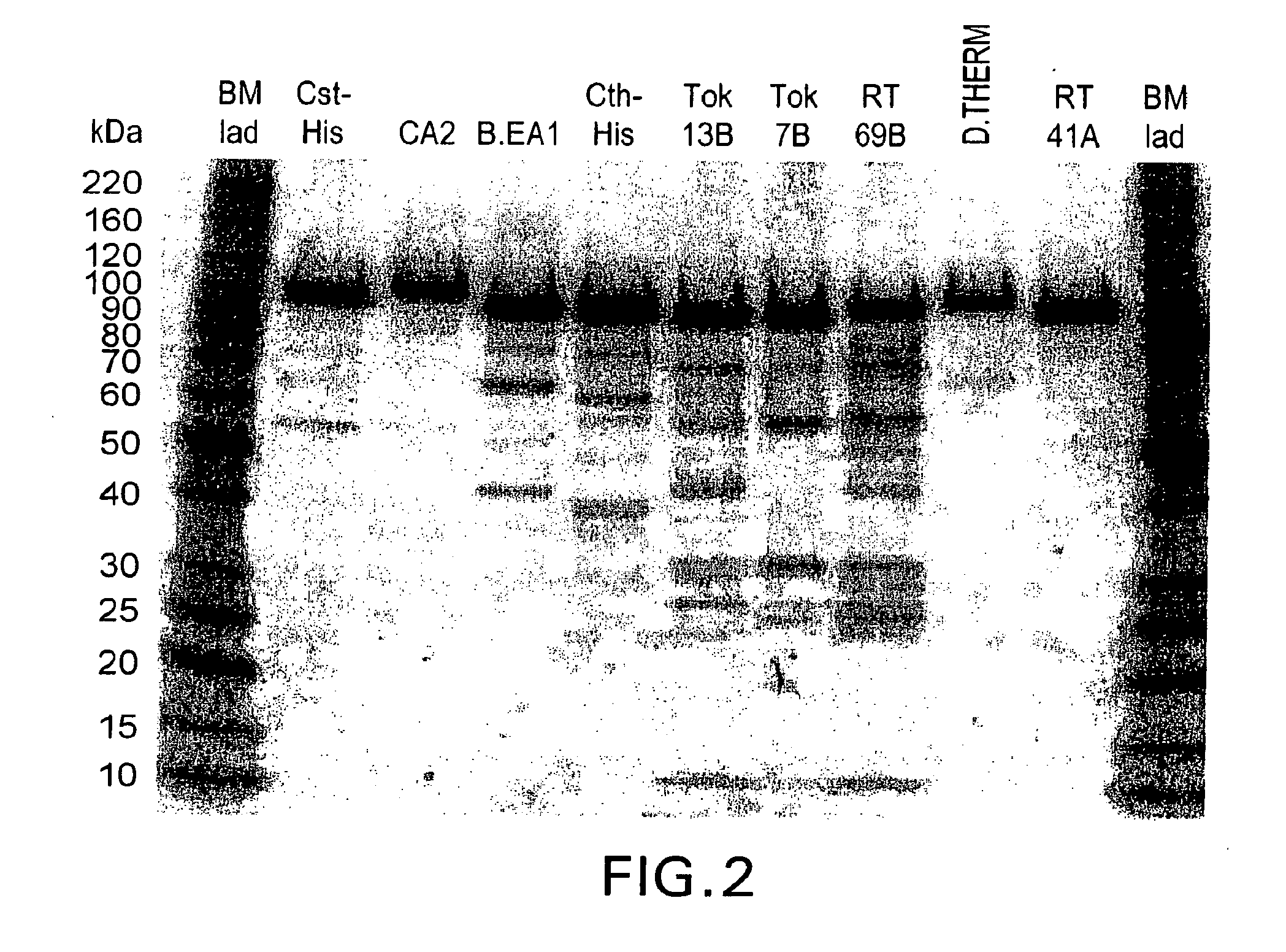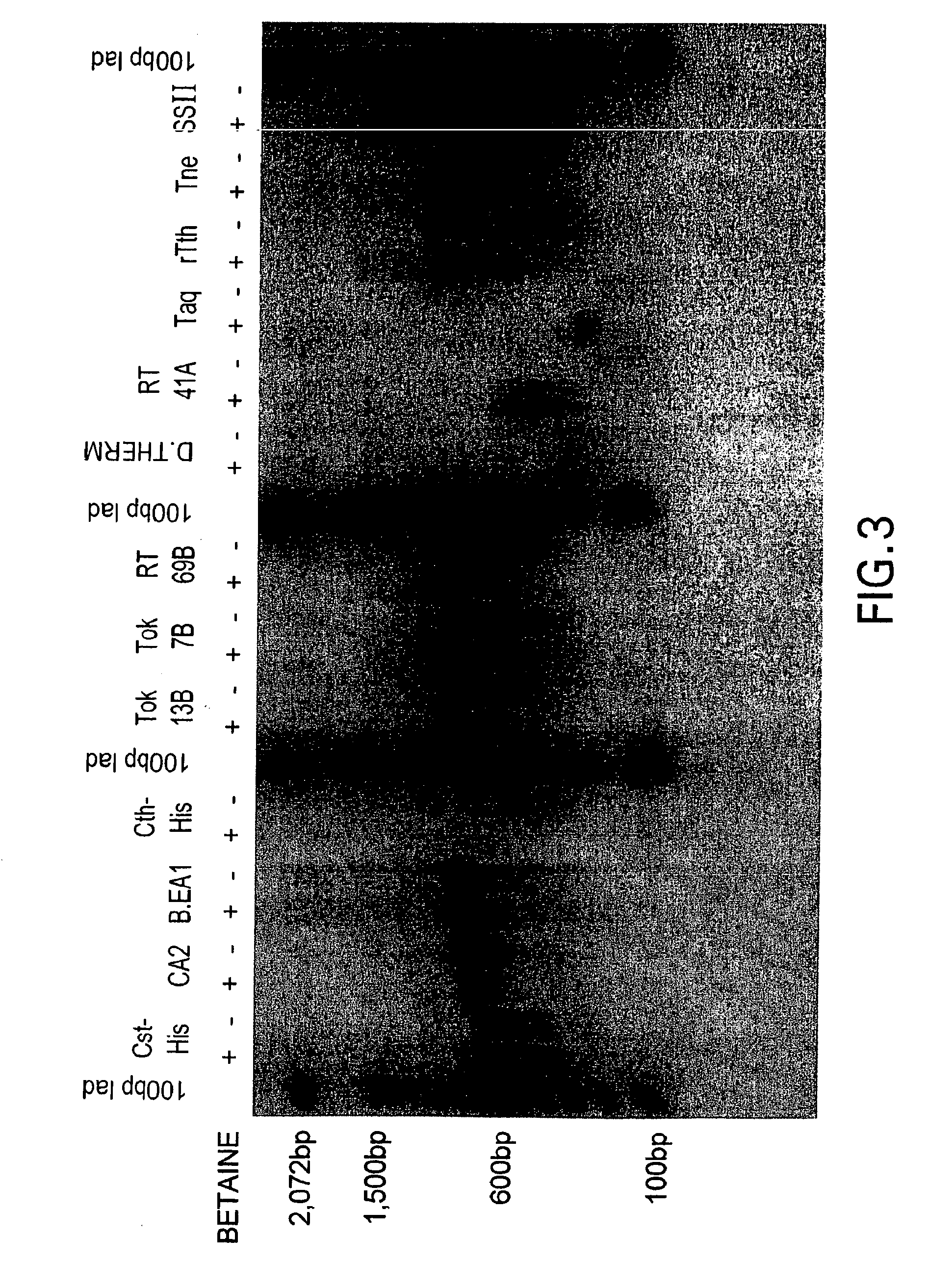DNA polymerases and mutants thereof
a dna polymerase and polymerase technology, applied in the field of molecular biology, can solve the problems of introducing a risk of contamination of the reaction mixture, reducing the activity of exonuclease, and not being efficient at the desired elevated temperature of reverse transcriptase enzymes, etc., to achieve enhanced thermostability of rna-dependent and/or dna-dependent polymerase activity, reducing exonucleas
- Summary
- Abstract
- Description
- Claims
- Application Information
AI Technical Summary
Benefits of technology
Problems solved by technology
Method used
Image
Examples
example 1
Cloning of Polypeptides of the Invention
[0403]DNA polymerase from Clostridium stercorarium cloned into the expression vector pET26B (Novagen Inc., Madison, Wis.) in the BL21SI cell line Invitrogen Corporation, Carlsbad, Calif.), obtained from Macquarie University was purified.
[0404]Conserved motifs found in known bacterial PolI DNA polymerase sequences were identified and degenerate PCR primers were designed for PCR amplification of an internal portion of polI genes from all bacterial divisions. We describe here a method that has allowed the rapid identification and isolation of 13 polI genes from a diverse selection of thermophilic bacteria and report on the biochemical characteristics of nine of the recombinant enzymes. Several enzymes showed significant Reverse Transcriptase activity in the presence of Mg2+.
[0405]Thermostable DNA polymerase from Thermus aquaticus (Taq) made the polymerase chain reaction (PCR) feasible, and introduced a powerful technology that complemented recomb...
example 2
Growth and Expression
[0438]The constructs were analyzed for expression of the DNA polymerase. Overnight cultures were grown (2 ml) in LB no salt (LBON) containing kanamycin (50 μg / ml) at 37° C. To 40 ml of LBON+Kan, 1 ml of the overnight culture was added and the culture was grown at 37° C. until it reached an O.D of ˜1.0 (A590). The culture was split into two 20 ml aliquots and the first aliquot (uninduced) was kept at 37° C. To the other aliquot, 5 M NaCl was added to a final concentration of 0.3 M and the culture was incubated at 37° C. After 3 hours the cultures were centrifuged at 4° C. in a tabletop centrifuge at 3500 rpm for 20 minutes. The supernatant was poured off and the cell pellet was stored at −70° C. until analyzed.
[0439]The expressed protein was analyzed by SDS-PAGE. The cell pellet was suspended in 1 ml of sonication buffer (10 mM Tris pH 8.0, 1 mM Na2EDTA, 10 mM β-mercaptoethanol (β-ME)) and was sonicated (550 Sonic Dismembrator (Heat Systems), ½ inch tip, at a set...
example 3
Measuring DNA Polymerase Activity
[0440]The crude lysate was analyzed for thermostable polymerase activity. An aliquot of the crude lysate was placed either in a 55° C. or a 75° C. water bath and heated for 15 minutes. Each sample was cooled on ice, centrifuged to bring down precipitated proteins, and each supernatant was analyzed for thermostable DNA-dependent DNA polymerase activity. The activity assay is a 25 μl reaction mixture containing 25 mM TAPS, pH 9.3, 2.0 mM MgCl2, 50 mM KCl, 1.0 mM DTT, 0.2 mM each dNTP, 12.5 μg nicked salmon testes DNA, and 1 μCi 3H-TTP. After incubation at 72° C. for 10 minutes, the reaction was terminated by addition of 5 μl of 0.5 M EDTA. Incorporation of radioactivity into acid-insoluble products was determined.
[0441]Thermostable DNA-dependent DNA polymerase activity was seen in the crude lysate as well as in the 55° C. heat denatured samples of all three polymerases. However the 75° C. heat denatured samples of C. stercorarium and C. thermosulfuroge...
PUM
| Property | Measurement | Unit |
|---|---|---|
| temperatures | aaaaa | aaaaa |
| temperatures | aaaaa | aaaaa |
| temperatures | aaaaa | aaaaa |
Abstract
Description
Claims
Application Information
 Login to View More
Login to View More - R&D
- Intellectual Property
- Life Sciences
- Materials
- Tech Scout
- Unparalleled Data Quality
- Higher Quality Content
- 60% Fewer Hallucinations
Browse by: Latest US Patents, China's latest patents, Technical Efficacy Thesaurus, Application Domain, Technology Topic, Popular Technical Reports.
© 2025 PatSnap. All rights reserved.Legal|Privacy policy|Modern Slavery Act Transparency Statement|Sitemap|About US| Contact US: help@patsnap.com



